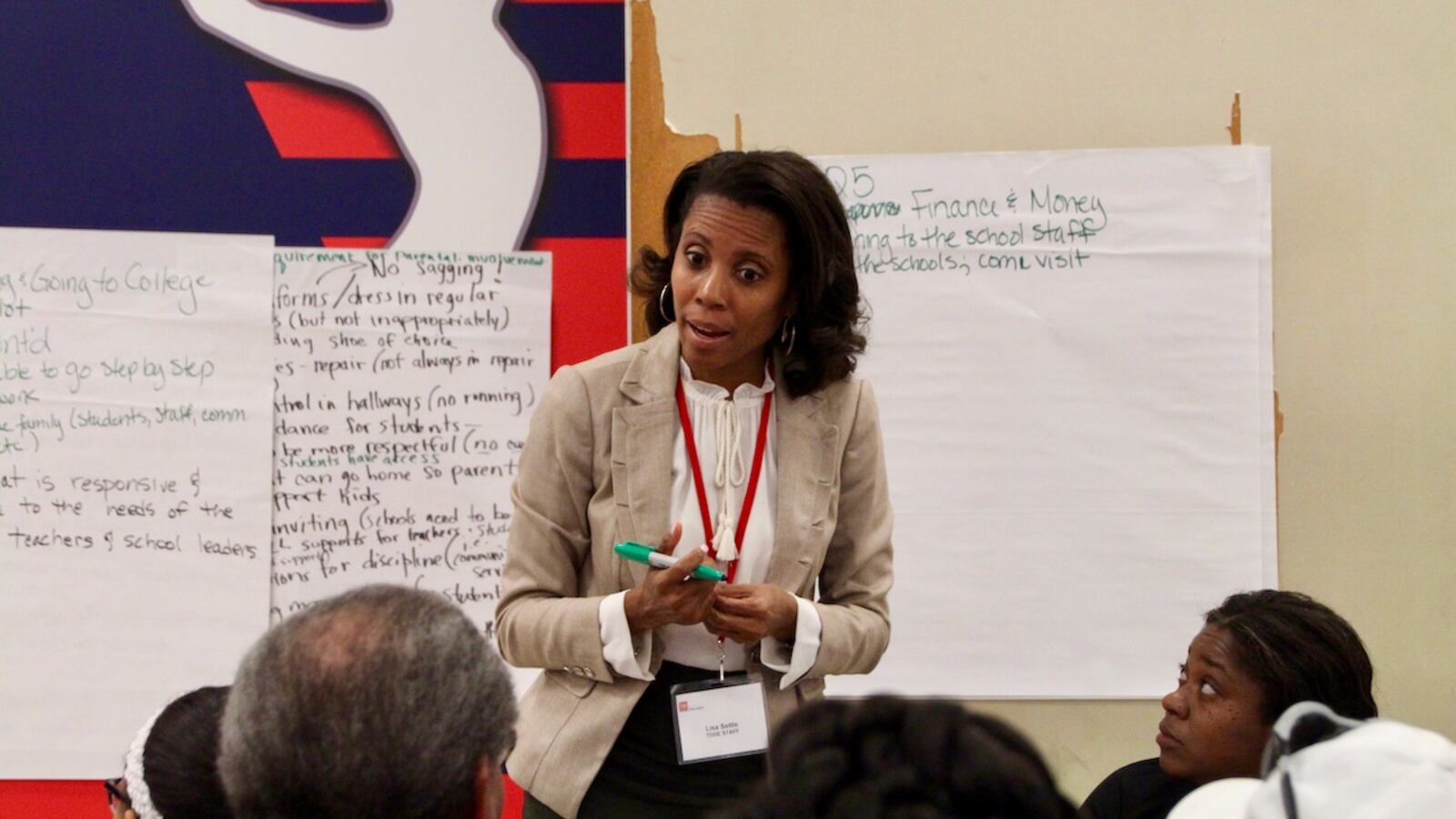Tennessee wants to return 30 state-run schools to local districts in Memphis and Nashville no later than the fall of 2022, but also wants to retain its state-run district to possibly take over other chronically low-performing schools, says a proposal being unveiled this week.
Exactly how that transition would happen is unclear as the state education department seeks to revamp turnaround work for Tennessee’s lowest performing schools.
According to a copy of the proposal obtained by Chalkbeat, the transition is part of a massive reset for the embattled turnaround model known as the Achievement School District – made up mostly of charter organizations – which has fallen woefully short of its goal to improve student performance since launching in 2012.
The department wants the proposed reforms, which would affect other struggling schools outside of the achievement district, to start by next fall. But before other schools could be absorbed by the achievement district, they would have a year to nine years to improve with the help of local interventions and additional state funding and support.
The overhaul would require approval by the state legislature and the U.S. Department of Education, since school improvement is part of the state’s plan under a 2015 federal law.
The Achievement School District has taken over dozens of underperforming schools in Tennessee’s two largest cities and assigned most to charter operators charged with moving the schools’ academic performance into Tennessee’s top 25 percent in five years.
That didn’t work. Most remain in the bottom 5%, and several schools have closed due to low enrollment. Teacher retention has been another major challenge. Similar turnaround models in other states haven’t fared better. Nevada closed its achievement district, while North Carolina and Mississippi have struggled to get theirs off the ground.
“Despite good intentions, the ASD was implemented (or grew) too quickly,” the state’s presentation says in recapping some of the lessons learned in Tennessee. “Demand outpaced supply and capacity.”

Even so, the district wouldn’t go away under the state’s proposal.
“The Achievement School District remains a necessary intervention in Tennessee’s school framework when other local interventions have proven to be unsuccessful in improving outcomes for students,” the presentation says.
The state’s proposal will be unveiled this week by Chief Districts and Schools Officer Eve Carney during four community meetings beginning Monday night in Jackson. Other meetings are set for Memphis, Chattanooga, and Nashville.
“Sustainable school turnaround happens over time and in collaboration with dedicated partners,” Carney said in a statement. “The department is committed to investing the time and resources necessary to create lasting change in our high-opportunity schools.”
The 41-page presentation outlines how the state wants to restructure all of its school improvement work, placing priority schools along three tiers requiring interventions that range from locally led initiatives to takeover by the state-run district. The next priority list will be issued in 2021, and placement would be based on several factors, including the number of times a school has made the priority list, its discipline rates, and measures of school accountability.
Commissioner Penny Schwinn has hinted for months that changes are coming to the achievement district, and her department’s proposal creates an uncertain future for the 30 schools now in it.
“The question is what happens to ASD schools that are effectively serving communities,” said charter leader Bob Nardo, whose Libertas School of Memphis is one of only five schools to score at the highest level of academic growth. “We have been told that schools doing a great job won’t be punished for success, and we’re eager for more details on what the future will look like.”
High on the list of questions from ASD operators: How would schools transition back to their local districts? And will the achievement district continue to use charter management organizations?

“We are pushing for details,” said Maya Bugg, executive director of the Tennessee Charter School Center, a nonprofit group advocating for quality charter schools.
“We assume that the ASD will continue to be a charter-centric model. We believe and support all levels of state intervention,” she said, adding that charter schools need more resources around special education and facilities to be successful.
As for schools that are returned to local districts, state officials said both parties will have more than two years to work together on a transition plan. And if a charter operator’s application is rejected by the school board, it can appeal to the state’s new charter commission. This means that some charter schools eventually could return to state control and be overseen by the commission, rather than by the local districts.
RELATED: Some schools may exit Tennessee’s struggling turnaround district next year. But who will run them?
Any changes are sure to spark debate, especially in Memphis, home to 28 ASD schools.
“My hope is that they do what’s best for kids, and returning [schools] to the district doesn’t mean it’s going to work either,” said Sarah Carpenter, leader of parent advocacy group Memphis Lift. “Shelby County couldn’t turn those schools around at first. What will they do now?”
Shuffling schools and students among districts also creates a level of chaos that can be harmful to kids and teachers, said Regenia Dowell, president of a parent-teacher-student organization in Frayser, a Memphis community with eight achievement schools.
“Now, we are in a difficult situation where teachers and parents are able to say, will we still be at this school in five years?” Dowell said. “They don’t know what’s going to happen before 2022. If Shelby County doesn’t take them back, what’s the plan?”
Charter leaders have long said that the modest academic gains made by some operators were hard-fought, and that massive changes to the district should include input from them and their parents.
RELATED: How a Memphis state-run school improved math scores 9 percentage points in one year
The district, which started with six schools, has had three superintendents and several central offices restructures. The proposal says a new superintendent would be hired by July to replace Memphis school turnaround specialist Sharon Griffin, who resigned from the department last year. The new leader will oversee both the ASD and less intensive state interventions for other priority schools.
You can read the plan for the achievement school district below, and the state’s broader plan for turnaround further down:

